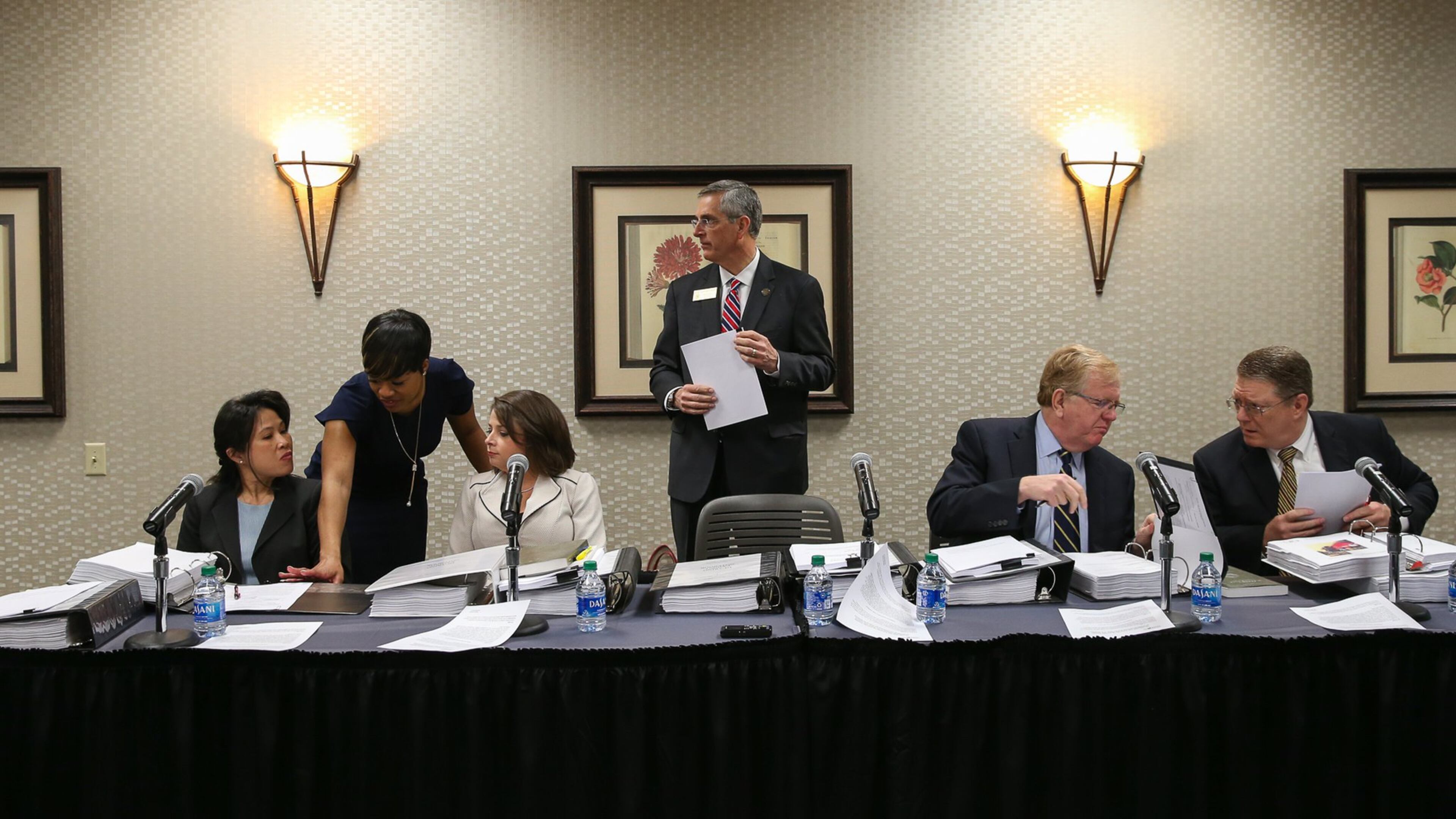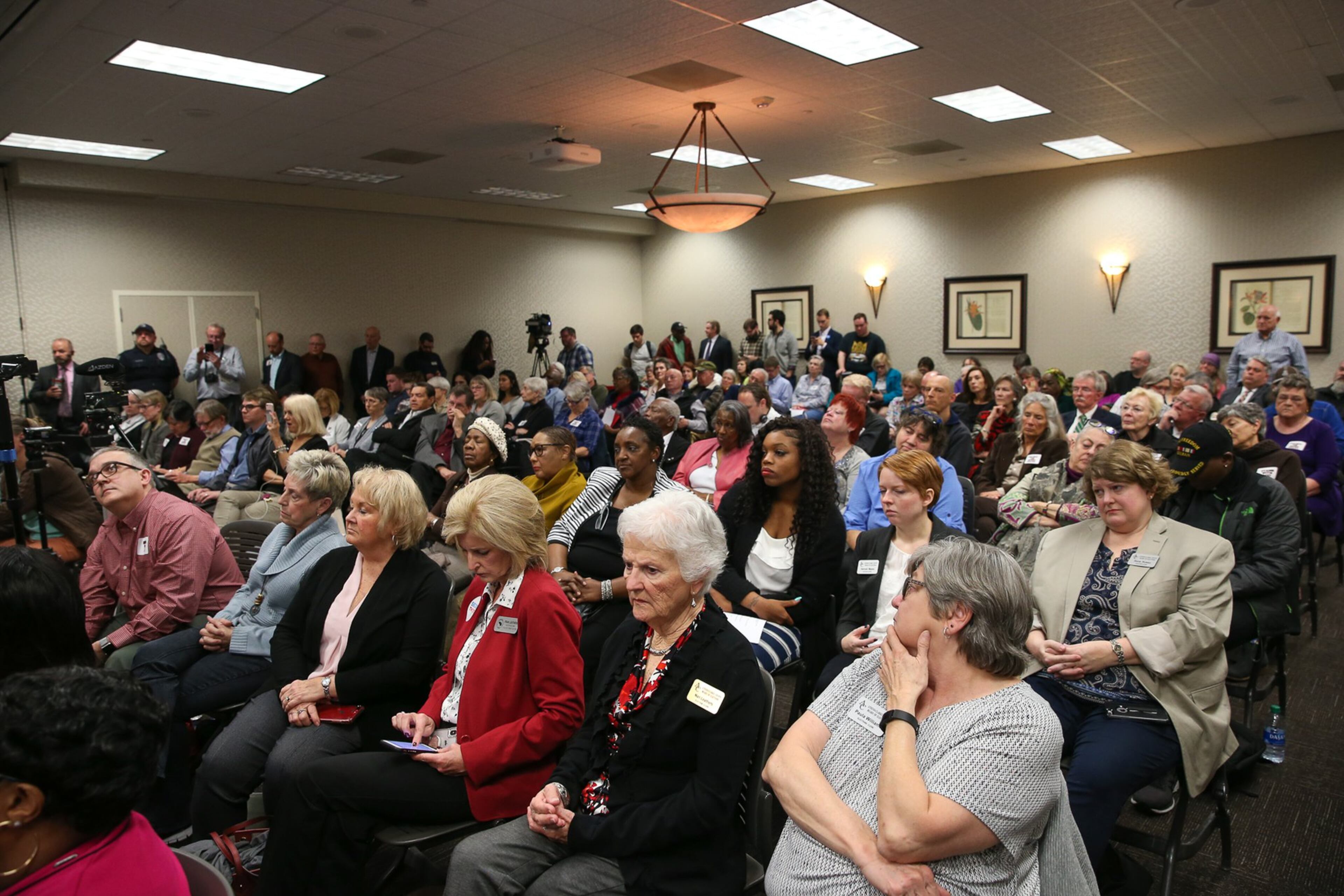State Election Board orders Athens to return to touchscreen voting

The State Election Board on Wednesday unanimously ordered Athens-Clarke County to immediately switch back to Georgia's touchscreen voting system, a rebuke of its decision to use paper ballots filled out by hand.
The board, led by Secretary of State Brad Raffensperger, found that voters' right to a secret ballot can be protected on the state's new $104 million voting system, which combines touchscreens and printers to create paper ballots.
“There are reasonable concerns about ballot secrecy in some limited number of precincts,” said David Worley, a member of the State Election Board. “The reasonable way to deal with that is not to make a wholesale change.”

State election officials said voter privacy can be protected by turning large, bright touchscreens so they face walls instead of voters.
The Athens-Clarke County Elections Board last week rejected the touchscreens, deciding on a 3-2 vote that they exposed voters choices to their neighbors. It was the only county in the state that had attempted to use hand-marked paper ballots.
More than 100 supporters of hand-marked paper ballots packed the seven-hour emergency hearing Wednesday, wearing stickers saying “Protect the Secret Ballot.”
“Ballot secrecy is a very serious thing, and it’s required by law,” said Jesse Evans, the chairman of the Athens board. “We were assured that ballot secrecy would be preserved at the early-voting site. It wasn’t. I saw it with my own eyes.”
Voters in Athens cast their ballots on the state’s computer-printed ballots last week during the first two days of early voting for the presidential primary.
Then the county’s early-voting location converted to paper ballots bubbled in by Sharpie markers the following day after the Athens board’s vote.
The touchscreens will be back in place by the time early voting resumes Thursday morning, Athens-Clarke County Elections Director Charlotte Sosebee said.
The State Election Board imposed a $5,000 per day fine if Athens doesn't revert to the touchscreens, but that fine will be avoided by quickly reinstalling the voting equipment.
The board also ordered Athens-Clarke County to pay $2,500 to cover investigative costs.
Under state law, all in-person Georgia voters must use the same voting system starting with this month’s presidential primary.
Voters will choose their candidates on touchscreens, which are connected to printers that will produce a paper ballot. Then voters will be able to review their selections before inserting their ballots into a scanner for tabulation.
The Athens board attempted to rely on a state law that allows for paper ballots when use of voting equipment is “impossible or impracticable.”
Athens board members said touchscreens couldn’t be rearranged to protect voters’ privacy in some cramped voting locations.
“It was clear to me that I would have been able to see other voters’ ballots as I passed their booths,” said Anne Marie Zimeri, who voted in Athens on March 3.
Another Athens voter, Laura Camacho, said plastic blue barriers between voting booths were insufficient.
“This was not very private,” Camacho said. “If somebody wanted to see what I was doing, they could have.”
But both voters acknowledged that no one looked at their ballots while they were voting.
Election workers for the secretary of state’s office and Athens-Clarke County said they can find ways to reposition touchscreens both during early voting and on Election Day.
“There could be challenges there, but they’re all possible to resolve,” said Melanie Frechette, who was a training administrator for the secretary of state’s office until she changed jobs last month.
A judge in South Georgia recently ruled against an effort to force a switch to hand-marked paper ballots because of privacy concerns. Sumter County Superior Court Chief Judge R. Rucker Smith denied an emergency motion last month to require paper ballots filled out by hand.
Raffensperger said all in-person voters must use the voting system the Georgia General Assembly approved last year. Any Georgia voter can vote by hand if he or she requests an absentee ballot.
“Today’s decision makes clear to all counties that they must follow state law and ensure that every vote in this state is cast the same way,” Raffensperger said.



